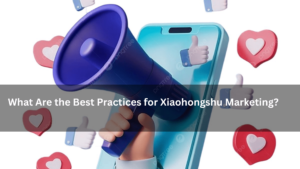Introduction: Why Your OEM Supplement Manufacturer Matters
Launching a successful supplement brand involves more than a brilliant marketing strategy or eye-catching packaging—it starts with the product itself. And behind every quality supplement lies a reliable and skilled manufacturing partner. In today’s competitive nutraceutical market, selecting the right OEM (Original Equipment Manufacturer) supplement manufacturer is one of the most critical decisions a brand can make.
An OEM supplement manufacturer doesn’t just produce your product—they influence your brand’s credibility, regulatory compliance, product efficacy, and overall consumer trust. A poor choice in manufacturing can lead to inconsistent quality, recalls, regulatory issues, or brand damage. On the flip side, the right OEM supplement partner can streamline your operations, boost innovation, ensure compliance, and help you scale with confidence.
So, how do you choose the right OEM supplement manufacturer in a crowded and rapidly evolving market? This guide will explore the key factors, strategies, and questions every brand should consider before signing a partnership agreement.
1. Evaluate Experience and Reputation with Oem Supplement
When it comes to health and wellness, experience counts. You want an OEM supplement manufacturer with a solid reputation, proven industry knowledge, and a track record of producing safe, effective, and high-quality products. Years of experience often translate into process maturity, risk management capabilities, and familiarity with regulatory changes.
Start by researching the manufacturer’s history:
-
How long have they been in the supplement industry?
-
What kind of clients have they worked with?
-
Are they known for any specific niche (e.g., weight management, sports nutrition, cognitive health)?
-
Do they have case studies or client testimonials available?
A reputable OEM supplement manufacturer will have no issue sharing success stories, industry recognitions, or third-party reviews that vouch for their capabilities.
2. Check Compliance and Certifications: Oem Supplement
Compliance is non-negotiable in the supplement industry. Your OEM supplement manufacturer must meet all regulatory requirements in your intended markets. This includes not only local health regulations but also global standards if you plan to distribute internationally.
Key certifications to look for include:
-
GMP (Good Manufacturing Practices): Indicates that the facility follows strict production and quality standards.
-
ISO certifications: Ensures international quality and environmental management systems are in place.
-
FDA registration (for U.S. manufacturers): Important if your products will be sold in the U.S.
-
Halal/Kosher certifications, organic certifications, or non-GMO credentials: These are valuable if you’re targeting specific demographics or dietary needs.
Always ask for up-to-date documentation and audit reports. A compliant manufacturer is transparent and open about their quality and safety protocols.
3. Assess Customization and R&D Capabilities with Oem Supplement
One of the biggest advantages of working with an OEM supplement manufacturer is the ability to create unique, customized products tailored to your brand. Whether you’re formulating a new multivitamin, a collagen drink, or a cognitive-enhancing nootropic, your OEM partner should have robust R&D support.
Ask questions like:
-
Do they have an in-house research and development team?
-
Can they help you develop proprietary formulas?
-
Do they stay updated on trending ingredients, delivery methods, and consumer preferences?
-
Are they open to sourcing new or rare ingredients?
A good OEM supplement manufacturer should act as your innovation partner, helping you bring cutting-edge formulations to market faster.
4. Oem Supplement: Consider Production Capacity and Scalability
Your manufacturing partner needs to keep up with both your current order volume and your projected growth. It’s important to choose an OEM supplement manufacturer who can scale with your brand.
Evaluate their production capacity in terms of:
-
Minimum and maximum order quantities
-
Turnaround time for each production cycle
-
Flexibility during seasonal demand spikes
-
Storage capabilities for finished goods or raw materials
A manufacturer with bottlenecks in production can cause costly delays or stockouts—issues that can quickly damage customer trust and hurt your revenue.
5. Oem Supplement: Analyze Quality Control and Testing Procedures
Consistency and safety are the foundation of any supplement brand’s reputation. That’s why your OEM supplement manufacturer must have stringent quality control processes and in-house or third-party testing for all products.
Make sure they provide:
-
Certificates of Analysis (COAs) for every batch
-
Microbial, heavy metal, and allergen testing
-
Stability testing to ensure shelf-life accuracy
-
Standard Operating Procedures (SOPs) for every stage of production
You should also ask whether they conduct audits, maintain traceability logs, and follow a product recall protocol. High-quality OEM supplement manufacturers will not compromise on these essentials.
6. Oem Supplement: Ask About Communication and Support
Open, timely, and honest communication is vital in any long-term business relationship. A responsive OEM supplement manufacturer will not only address issues quickly but also help you make informed decisions.
Evaluate:
-
How accessible is your account manager or point of contact?
-
Are they willing to guide you through product development and labeling?
-
Do they assist with market trends and regulatory updates?
-
Are they proactive or reactive when dealing with delays or changes?
A manufacturer that acts as a true partner, not just a vendor, will significantly improve your efficiency and agility.
7. Oem Supplement: Review Pricing and Transparency
While cost is an important factor, it should never come at the expense of quality or compliance. OEM supplement manufacturers offer a wide range of pricing models, and it’s essential to understand what’s included in the quoted cost.
Ask for a detailed breakdown:
-
Does the price include packaging, labeling, and certifications?
-
Are there hidden charges for additional testing or expedited shipping?
-
Are bulk discounts or long-term agreements available?
Also, clarify payment terms and conditions upfront to avoid surprises later in the process.
8. Oem Supplement: Look Into Packaging, Branding, and Fulfillment Services
Many OEM supplement manufacturers go beyond production and offer end-to-end services including:
-
Custom packaging design and sourcing
-
Private labeling and brand printing
-
Fulfillment and drop-shipping
These value-added services can save you time and reduce your need to juggle multiple vendors. If you’re launching a new brand or product line, having all services under one roof can significantly speed up your go-to-market timeline.
Oem Supplement Conclusion : Invest in the Right Partnership
Choosing the right OEM supplement manufacturer is not a decision to be taken lightly. It’s a strategic partnership that directly affects your product quality, brand image, customer satisfaction, and long-term growth. From compliance and customization to scalability and transparency, the ideal manufacturer is one that aligns with your vision and values.
Don’t rush the selection process. Take the time to evaluate, vet, and visit potential partners if necessary. Ask for product samples, discuss your brand goals, and make sure they’re as invested in your success as you are.
In the fast-growing and ever-evolving health supplement market, your OEM partner can be your strongest competitive advantage—or your weakest link. Choose wisely.







